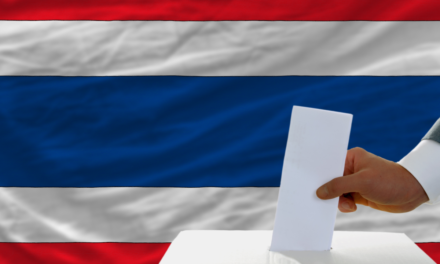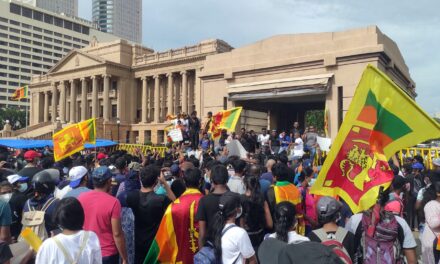 By: Robin Nieto – Venezuelanalysis.com
By: Robin Nieto – Venezuelanalysis.com
Caracas, August 16, 2004—Today at a press conference in Caracas, both the Carter Center and the OAS, supported the results of the country’s national electoral council (CNE), which shows results of the referendum as supporting President Chavez to stay on President.
“After an analysis, we are in a position to say that our information coincides with the results of the CNE,” Carter said, adding that the results are in favor of Chavez. The latest CNE total vote of the recall referendum is 57.42 % in favor of keeping Chavez in office and 42.58 % for the opposition and to recall Chavez, with more than 90 per cent of the total vote counted.
Cesar Gaviria, former President of Colombia and the lead observer for the Organization of American States (OAS) also reiterated Carter’s conclusions and refuted widespread reports from the opposition of electoral fraud. “We have not found fraud in the process,” Gaviria said, “and we are convinced that if there is a recount, the number will turn out to be the same number of the CNE,” Gaviria said.
Like Carter, Gaviria congratulated the people of Venezuela and hoped that different members of political stripes could cooperate in the future.
Leading members of the opposition have claimed widespread fraud early this morning after rejecting official referendum results announced by the CNE that showed a victory for Chavez. Henry Ramos Allup, of the opposition coalition Democratic Coordinator, supported two CNE directors, who dissented from the electoral council majority, claiming they were left out of the totaling process. According to Allup, the “Si” side won the election with 59 per cent of the vote, with the “No” side at 40 per cent. He did not specify how they reached this result.
However Carter explained that he was in the same room with the five directors of the CNE reviewing the total number of votes. Gaviria clarified that no one was actually part of the totaling process because of the complexity of the programs involved. The head of the OAS delegation explained, as did Carter several times through the conference, that the organizations have a Quick Count method to make sure their numbers coincide with those numbers of the CNE.
According to both officials, their numbers match. The second method in this election to eliminate the possibility of fraud, Carter explained, is to count the print-outs that voters received as proof of their participation in the referendum. Later, as part of the audit, a sample of voting tables will be selected, whose paper ballots will be counted and compared with the electronic tally.
Carter said that the method used by his Atlanta-based organization and that followed by the OAS ensures that there can be no fraud in this election and said this method has been used in other countries where the organization has acted as observers for elections.
According to Carter, the OAS and his organization had invited all of the private media to a private conversation in which they presented their conclusions late last night. Presumably, as a consequence, the private broadcast media played down the fraud accusations of the opposition the next morning.
In response to a question about how he reconciles the opposition’s claims of fraud with the his organization’s results, Carter responded that “All Venezuelans should accept the results, unless the results are wrong, and we have not received any evidence for that.”
Carter also made it clear that Sumate, an organization with close ties to the opposition, also handed in their own quick count that matched the numbers of the CNE. It was the organization’s exit polls, which led opposition leaders to believe that they were ahead in the vote 60 to 40 and to subsequently deny the validity of the CNE result.
In a press conference help shortly after that of the Carter Center and of the OAS, Sumate faced the press, saying that they still had “serious doubts” that the results the electoral council presented reflect the will of the voters. According to the organization’s spokespersons, María Corina Machado, Alejandro Plaz, and Luis Enrique Palacios, suggesting that the voting machines did not reflect the voters’ will. That is, the fraud, according to them did not lie with the transmission of the voting data, but in its collection. However, they did not provide any proof for this hyopthesis other than their exit polls, whose methodology they did not reveal. Read more fromhttp://www.indymedia.org.uk/en/2004/08/296391.htmlhttp://www.venezuelanalysis.com/
 By: Robin Nieto – Venezuelanalysis.com
By: Robin Nieto – Venezuelanalysis.com









